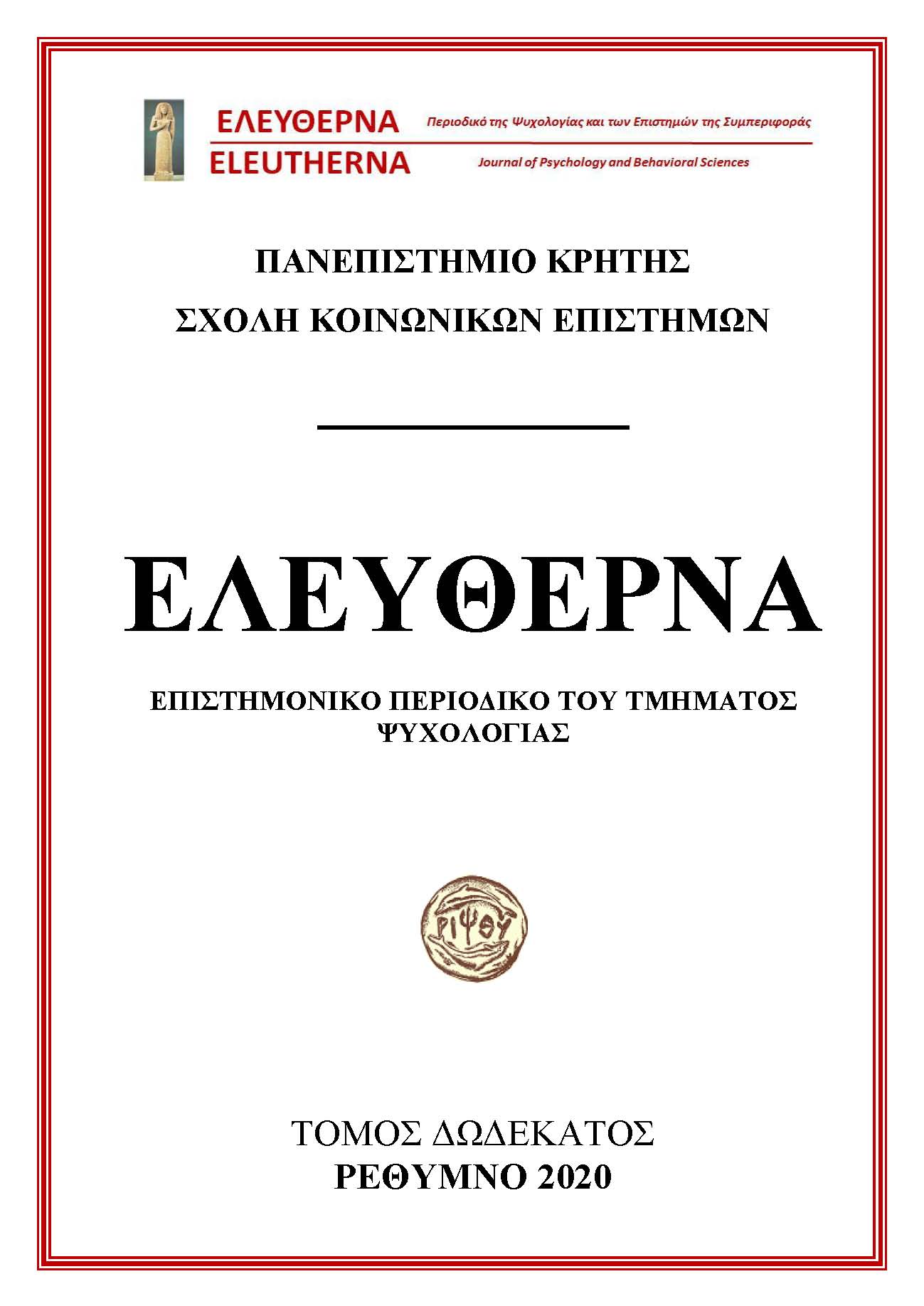Nursing and Social Work students’ perceived professional competence, self-efficacy, life stressors and mental health
DOI:
https://doi.org/10.26248/eleutherna.v12i0.1545Keywords:
perceived professional competence, self-efficacy, higher education students, mental health, stressful life events, Social Work, NursingAbstract
Perceived professional competence and self-efficacy are complex terms, which have been widely identified in concurrent literature as predictive criteria of future development and settlement of higher education students. The current study aimed at exploring factors affecting perceived professional competence and self-efficacy of Social Work and Nursing students of the Hellenic Mediterranean University. The study employed a sample of 313 students (171 Social Work, 142 Nursing). The questionnaire explored participants’ sociodemographic and academic factors, perceived professional competence and self-efficacy (Nursing Competency Self Efficacy (NCSE) Scale for Outgoing Nursing Students), mental health symptoms during the past month (Symptom Checklist List, SCL 90-R) and life stressors during the past year (Life Stress Inventory, LSI). A total of 67.3% of the participants reported life stressors during the past year, with 17.6% reporting the highest burden. All the mental health scales of SCL-90 were found to have a negative linear relationship with perceived professional competence and self-efficacy but no relationship was detected with regard to life stressors. Participants’ age, working status, subject and year of studies, as well as prior knowledge and high preference of the study subject, were shown to be significantly related with perceived professional competence and self-efficacy. The study has several implications for the educational and the health policy.
Downloads
Published
How to Cite
Issue
Section
License
This work is licensed under a Creative Commons License Attribution-NonCommercial-ShareAlike 4.0 International (CC BY-NC-SA 4.0).
Under this license EJPBS provides immediate open access to its content on the principle that making research freely available to the public supports a greater global exchange of knowledge.


